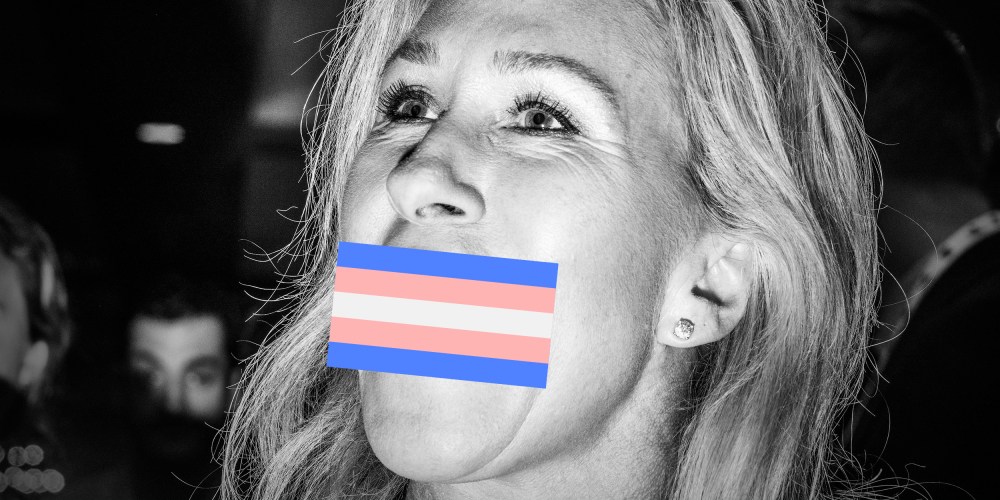Last week Twitter marked transphobic tweets from Rep. Marjorie Taylor Greene, R-Ga., as violating the site’s rules yet chose to leave the tweets up, saying they were a matter of public interest. It’s Twitter’s designated half measure that appears to be used mainly for when Republican lawmakers tweet offensive things.
We have one party on the-all out attack against us, the other party too afraid to speak up for us in an election year.
Greene’s tweets in this case were particularly offensive, first accusing U.S. Assistant Secretary for Health Rachel Levine of wanting to “#weeniechop” children, and then, in a follow-up tweet, speculating over the status of Levine’s own genitalia by asking if she’d gotten a “#weeniechop” herself.
By now we should all be used to Greene’s transphobic antics. She was first known as the QAnon candidate from Georgia but quickly embroiled herself in a transphobic back-and-forth with Rep. Marie Newman, D-Ill., who is mother to a trans child (both of whom I profiled for Teen Vogue last June). The two Congress members have offices across the hall from each other.
Since then, Greene has repeatedly run afoul of Twitter’s rules against hateful conduct toward trans people. But this latest incident is an escalation in rhetoric. Childish expressions like “weeniechop” directed at the genitals of any other government official, much less one who’s been Senate-confirmed, would rightly be considered beyond the pale and be widely condemned. But in this case, aside from the Twitter label, the tweets received little attention from Democrats (White House press secretary Karine Jean-Pierre did post a tweet praising Levine’s work).
The Biden-Harris Administration is stronger because of @HHS_ASH’s work to deliver quality health care for all Americans, no matter who they are. She is a leader who is standing up for all of our children, especially some of our most vulnerable.https://t.co/K0aDWK98mV
— Karine Jean-Pierre (@PressSec) July 19, 2022
Last year, Democrats on the Hill asked House Minority Leader Kevin McCarthy to condemn or take more formal party action against disparaging remarks Greene made about about Rep. Alexandria Ocasio Cortez, D-N.Y., but few came to the defense of Levine when she was the target of Greene’s Twitter vitriol.
It’s a worrying statement by omission that illustrates the precarious position trans people in the U.S. now find themselves in. We have one party on the all-out attack against us, the other party too afraid to speak up for us in an election year.

Greene’s comments are a break in decorum that we should all recognize as out of line. But we won’t, because they were directed at a trans person. This was always the inevitable result of turning the existence of trans people into a political debate. In any other context in human history, mockery directed at someone’s genitals is rightly seen as unprofessional at the very least, despicable at worst. But in a political debate, all rhetoric is seen as in bounds, and often as an expression of protected free speech.
But when someone is openly questioning what someone’s genitals are shaped like, should we really consider that to be in bounds for respectful debate? Should we be allowed to poll members of congress on whether they’ve been circumcised now, as a matter of public interest? No, that would quite obviously be ridiculous.
Thus far, and unsurprisingly, McCarthy has declined to speak out against Greene’s increasingly unhinged rhetoric about trans people. It’s obvious that much of the GOP establishment sees Greene as their attack dog, always willing to throw transphobic bits of red meat at the party’s obsessed base. In return, Greene apparently realizes that she’ll never have to worry about official backlash from her Republican colleagues, even when she suggests to Fox News host Tucker Carlson that McCarthy might be gay.













